
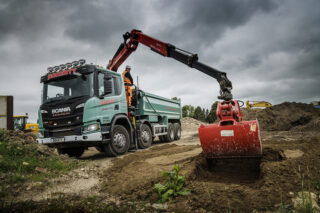
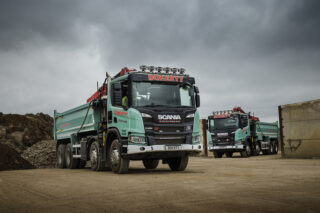
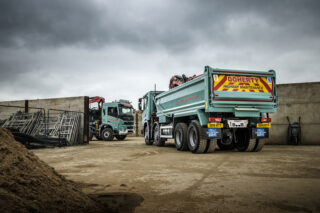
TIPPER GRAB OPERATORS NEED SIGNIFICANTLY DIFFERENT DRIVER SKILLS AND SIGNIFICANTLY DIFFERENT TRUCK CHARACTERISTICS TO THOSE RUNNING TRADITIONAL TIPPERS, AS DOHERTY GRAB HIRE EXPLAINS TO BULK & TIPPER.
It’s easy to think of an 8-wheel grab truck as just a 4-axle tipper with a crane mounted behind the cab. It is just that, of course – but as any operator running such vehicles will know, they must be operated in a completely different manner to other types of tipper.
The self-contained nature of a grab truck means it is used to perform several services, with its ability to load itself and place materials where they are required. Often a skilled operator will have to carry out such operations with minimal input from the customer, or even none at all.
Obviously, the additional weight of the crane, grab, chassis subframe and other equipment bites into the payload of the truck, compared with a conventional tipper, so they won’t generally be used for conventional haulage work unless other services are required.
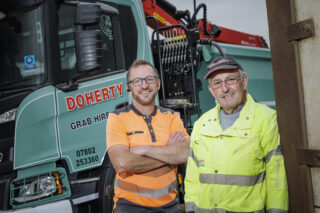
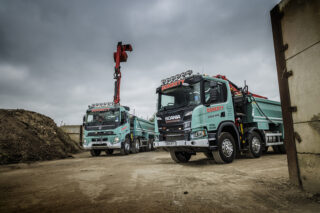
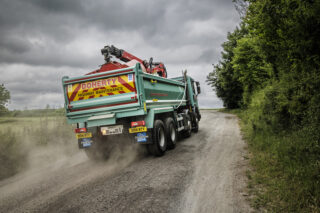
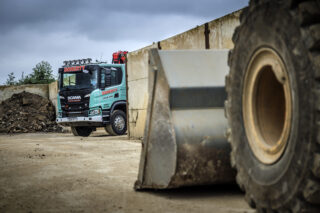
ALL-ELECTRIC CONCRETE DELIVERIES ARE NOW A REALITY AT TARMAC, THANKS TO A BATTERY- POWERED RENAULT E-TECH D WIDE 6X2 WITH MCPHEE MIXERS DRUM THAT ENTERED SERVICE LATE LAST YEAR. STEVE BANNER FINDS OUT HOW WELL IT IS WORKING.
A zero-emission all-electric concrete mixer based on a battery-electric Renault Trucks E-Tech D Wide 6×2 chassis has gone into service with Tarmac. Equipped with a 5.8cu m mixer drum by McPhee Mixers and based at Tarmac’s site at Washwood Heath in Birmingham, it is achieving a range of 72 miles between recharges, servicing customers around the city. It makes up to five deliveries daily with the drum relying on power from the truck’s traction batteries.
Renault Trucks says it is the first vehicle of its type to be operated in the UK. McPhee’s parent group TVS Interfleet (TVSI) predicts it will save 42 tonnes of CO2 annually – 1.55kg of CO2 a mile – compared with its closest fossil-fuel equivalent; good news for Tarmac’s carbon footprint.

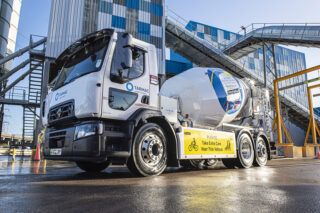
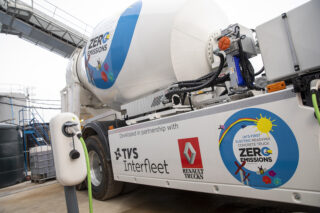
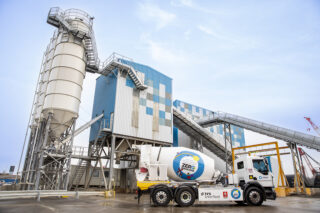
With 148 pages of first-class niche transport content, what more could you wish for? Click the appropriate link below to purchase your annual subscription, or an individual copy.
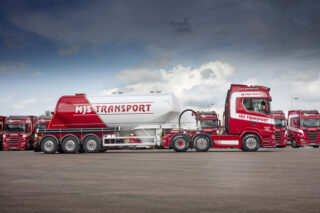
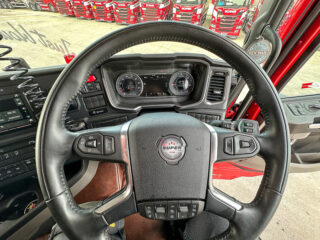
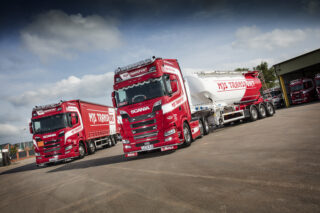
WITH A MODERN FLEET OF TRUCKS AND TRAILERS AS WELL AS STATE-OF-THE-ART PREMISES, MJS TRANSPORT HAS SEEN CONTINUAL GROWTH SINCE STARTING OUT IN 1988 WITH A SOLITARY VAN, AS DOUGIE RANKINE REPORTS.
While the truck fleet at MJS Transport is impressive, with the line-upconsisting almost entirely of high-specification Scanias, the set-up at its base in Cheadle, Stoke-on-Trent is equally so. The spotless yard with concrete surface has undercover parking bays, a five-bay workshop with two pits, a large warehousing facility and fuel pumps. Not only that, but there’s expansion in progress to substantially increase the available space. Celebrating its 35th anniversary this year, MJS is a great example of a well run haulage operation, despite starting out modestly in 1988 with a single Mercedes-Benz van.
Owner Michael Shirley tells us more about the journey from one van to around 50 trucks. He is the third generation in his family to be engaged in transport, with his grandfather starting out in 1936. That company is still thriving today as Shirley’s Transport, which could be considered a sister to MJS.
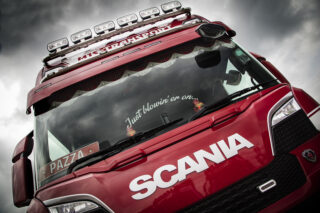
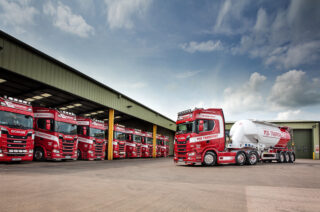
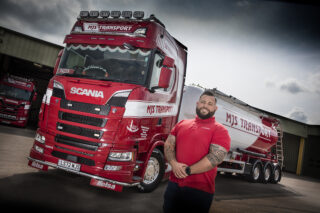
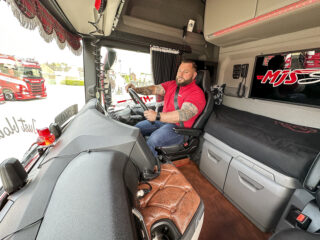
DAF'S NEW TRUCK RANGE REPRESENTS A MAJOR STEP FORWARD IN MANY RESPECTS AND INCORPORATES NUMEROUS MODELS OF INTEREST TO THOSE RUNNING TIPPERS AND OTHER BULK OPERATIONS, AS BOB BEECH REPORTS.
Last September we reported our findings after examining and driving the freshly launched DAF XD range, with its lower mounted version of the striking new cab design used on the XF, XG and XG+ heavy range. The new XD models are aimed at the distribution and medium distance sectors and break new ground in terms of driver comfort and refinement, combined with class-leading fields of view and other safety features.
We mentioned at the time that the construction and vocational versions of the New Generation DAF truck range – namely the XDC and XFC models – were due for launch imminently and, as we hoped, we were soon able to try out these important models for the bulk haulage and tipper market at two separate events.
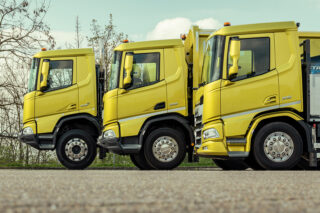
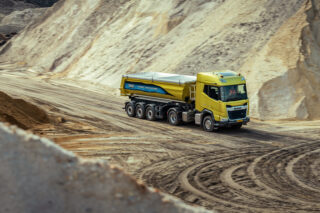
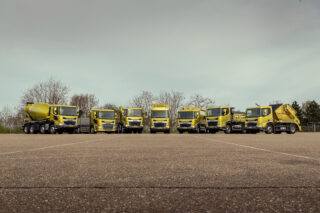
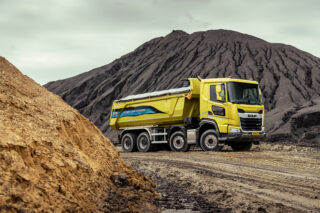
With 148 pages of first-class niche transport content, what more could you wish for? Click the appropriate link below to purchase your annual subscription, or an individual copy.
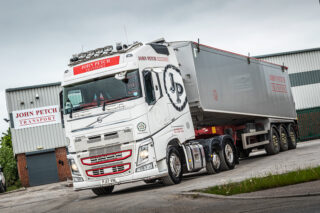
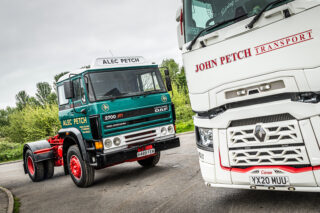
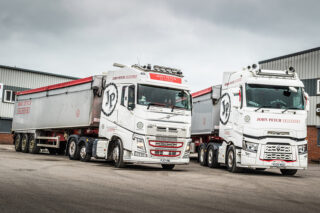
TRADITIONAL FAMILY-RUN FIRMS CAN SOMETIMES BE SLOW TO TAKE UP NEW TECHNOLOGY. BUT THAT'S NOT THE CASE AT BULK HAULIER JOHN PETCH TRANSPORT, WHICH TAKES PRIDE IN RUNNING A MODERN, WELL- CONNECTED FLEET, AS DOUGIE RANKINE REPORTS.
John Petch Transport was established in 2007, though the roots of the company can be traced much further back, as the Petch family has a long history in transport. John started out with one truck as an owner-driver, and was joined by his son Dave in 2012. Today the firm has over 20 artics pulling bulk tippers, split between Volvo, Renault and DAF. John’s brother also runs a fleet of trucks, meanwhile, trading as Roger Petch Transport.
When he started out, John was initially kept busy hauling biomass from Hull into Drax power station, and when he added a second truck, Dave drove it. An opportunity came up to haul material for British Gypsum and there was plenty of work on offer, with John sourcing subbies to cover the workload. Having established a good relationship with British Gypsum, he then got a job working directly for it, using a truck based permanently on site to move material from trains to storage, with a second artic delivering from store to factory.
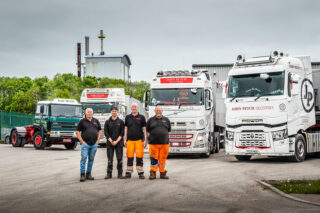
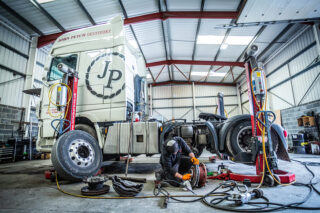
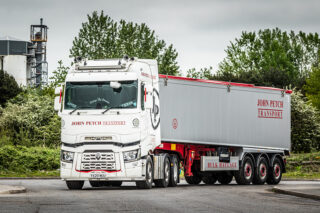
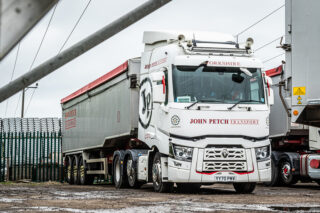
HOPKINS ESTATES UNDERTAKES AN UNUSUALLY WIDE RANGE OF ACTIVITIES INCLUDING CONCRETE SUPPLIES, AND ITS LATEST ORDER FOR OVER THIRTY NEW VOLVO TRUCKS REFLECTS THAT BREADTH, AS HARRISON THOMAS FINDS OUT.
What do property development and rental, volumetric concrete mixing, muckaway haulage, aggregate supply and farming all have in common? Nothing, perhaps, unless you’re Wincanton-based Hopkins Estates, for which these various pursuits are all just the markers of 50 years in business.
These various domains mirror the CV of company founder and MD Bill Hopkins, who is still the guiding force for Hopkins Estates after starting off in property development back in 1972. The company’s future is in strong hands, with three generations of Hopkins working within the business. This includes Bill’s son, Nathan, who has inherited his father’s knack of multi-tasking. Bill and Nathan are instrumental in running all aspects of the business together. Grandson Toby is also present, giving Hopkins Estates further solidity with which to continue its quest to grow and expand for many years to come yet.
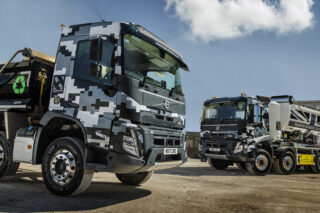
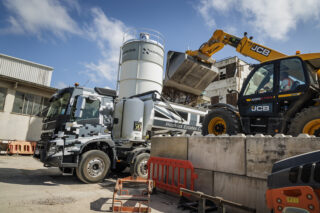
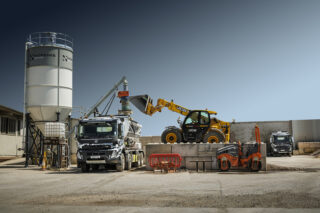
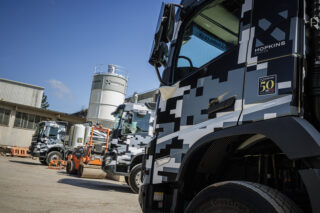
With 148 pages of first-class niche transport content, what more could you wish for? Click the appropriate link below to purchase your annual subscription, or an individual copy.
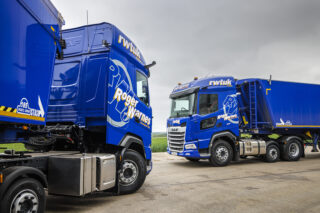
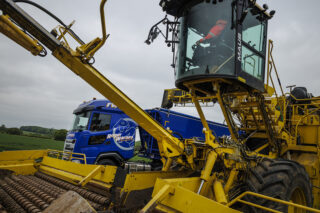
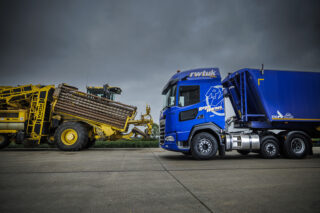
ROGER WARNES TRANSPORT HAS CARVED OUT A SUCCESSFUL OPERATION AS A FAMILY-OWNED AGRICULTURAL BULK HAULAGE BUSINESS IN WEST NORFOLK FOR MORE THAN 50 YEARS, WINNING WORK ON THE STRENGTH OF ITS SERVICE AND THE VOLUMES IT CAN ACCOMMODATE. CHRIS TINDALL VISITS OPERATIONS DIRECTOR IAN BARCLAY TO FIND OUT WHAT KEEPS THE FIRM'S MD GOING STRONG IN HIS EIGHTIES.
There is a moment towards the end of our interview with Roger Warnes Transport when its eponymous owner strides across the yard and past the window of the office where we’re sitting, on a pleasant farm plot in rural Norfolk. The man who built the bulk haulage and storage business from scratch over 50 years ago clearly has no plans to hang up his boots.
“To say he’s a notoriously hard worker is probably an understatement,” nods Ian Barclay, operations director at the company. “His brain doesn’t switch off. He puts people half his age to shame and his brain is as sharp as ever.”
The seeds of Roger Warnes Transport’s operation were sown here on the 6.6-acre site in Great Dunham, not far from King’s Lynn, back in the 1960s.
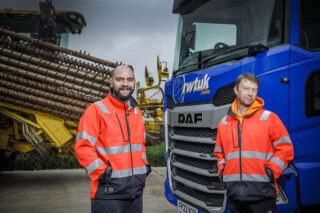
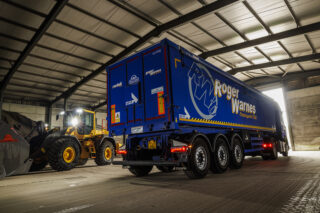
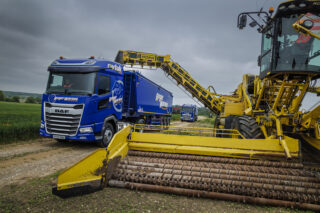
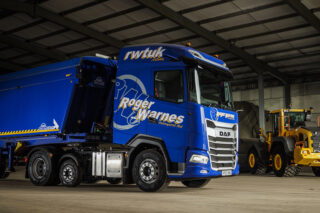
JOHN WHITWOOD ADMITS HE FELL INTO THE TRANSPORT INDUSTRY RATHER BY ACCIDENT! DURING A CAREER SPANNING NEARLY 50 YEARS HE WORKED IN GENERAL HAULAGE, HEAVY HAULAGE AND LOGISTICS, BUT HE SPENT HIS FIRST FEW YEARS HELPING TO OPERATE A FLEET OF TIPPERS, PREDOMINANTLY RUNNING INTO AND OUT OF THE STEELWORKS AT SCUNTHORPE. JON HARLE HAS BEEN TO MEET HIM.
Like many teenagers growing up in 1960s Scunthorpe, John Whitwood left school at 16 and went straight into a job at the steelworks. But the shift work didn’t suit him, particularly the 3.30am alarm call to catch the early morning bus, so after just eight weeks he went to the careers office in the town to look for something else. He was offered a job with North Lincs. Haulage as a clerk in the workshops. “I started on the tipper division,” he tells me. “We had about 60 tippers, including Albions, Dodges, Guys and Scammells, and my job was to book vehicles in for servicing and repairs. And on Saturday afternoons I had to crawl around every cab to retrieve the cards from the time recorders. They were bolted on the inside of the cabs to record when the vehicle was moving, like an early tachograph. The cards were made of wax, and some drivers got wise to them and learned how to melt them so we couldn’t read them properly!”
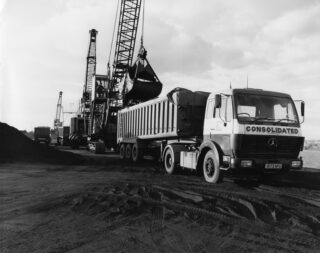
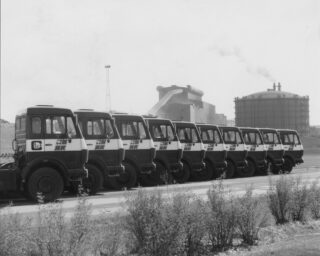
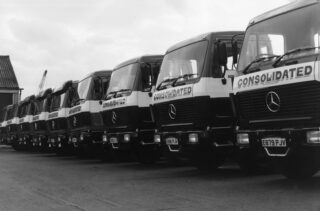
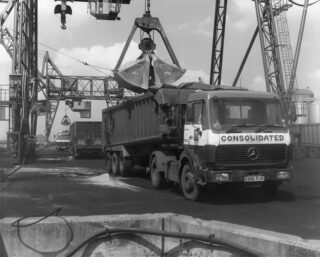
With 148 pages of first-class niche transport content, what more could you wish for? Click the appropriate link below to purchase your annual subscription, or an individual copy.